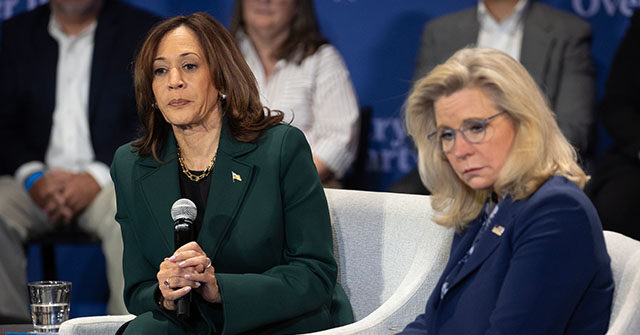In a recent op-ed for The Federalist, a retired U.S. Army colonel, writing under the pseudonym “Cynical Publius,” expressed the profound discontent of many veterans towards Vice President Kamala Harris and the Democratic Party, particularly in light of criticisms directed at former Rep. Liz Cheney (R-WY). The author argues that these sentiments stem from a convergence of three groups: neoconservatives who championed the Global War on Terrorism (GWOT), the media and Democrats who disparaged the missions of veterans, and military generals who failed to bring these wars to a successful conclusion. This coalition has generated a sense of betrayal among veterans who served in Iraq and Afghanistan, leading many to align themselves with former President Donald Trump, who they feel genuinely cares about halting unnecessary conflicts.
The author posits that Cheney has become a representative of the advocates for endless warfare—those who never served on the front lines but were instrumental in initiating the GWOT. Individuals like Dick Cheney, Alberto Gonzales, and various Republican operatives who created the conditions that placed veterans in harm’s way are viewed with resentment. The op-ed highlights a painful reality for veterans: while some believe they accomplished significant objectives during their service, many feel the majority of their efforts and sacrifices were ultimately futile, and the continued support for endless conflict by political leaders, including Cheney and the Democrats, feels like a deep injustice.
Veterans returning from Iraq often encountered a stark disconnection between the media narrative about the wars and the realities they experienced. The author recalls returning to the United States to find Democrats who had once supported the wars now vehemently opposing them, which felt like a betrayal to the servicemen and women who fought in them. The author criticizes the media for aiding in this disillusionment through their portrayal of the war effort, which veterans perceived as undermining their sacrifices and morale, adding to the feelings of abandonment and resentment towards political figures who once rallied support but later shifted their stance.
Moreover, the op-ed addresses the failures of military generals who took part in the wars. Instead of holding those individuals accountable, many have transitioned into the civilian sector and maintained their opposition to Donald Trump, while promoting Harris. The colonel lists several generals, critiquing their decisions and actions during pivotal operations in Iraq and Afghanistan. It is this alignment with pro-Harris sentiments that exacerbates veterans’ feelings of betrayal, particularly when these generals, who they believe led with incompetence, now endorse a political figure that many consider perpetuating the cycle of war.
The culmination of feelings from these three groups—the neoconservatives who initiated the conflicts, the Democrats and the media who criticized the veterans’ missions, and the generals who failed in their leadership roles—has created an environment in which veterans feel marginalized and disrespected. The retired colonel asserts that this collective alienation leads to a broader fury against Harris and her allies, who he sees as perpetuators of the same war mentality that has cost lives and resources over decades.
By linking these sentiments together, the op-ed argues that Harris has unwittingly united her critics, exposing the betrayals by those who once held positions of authority and respect within military and political spheres. The author concludes with a defiant assertion that veterans will no longer support those who advocate for unwanted wars. Instead, they will vote for leaders who prioritize genuine national security over conflict for conflict’s sake, echoing a sentiment that emphasizes the necessity to only engage in warfare when national survival is genuinely at stake. This re-evaluation of priorities encapsulates a growing resolve among veterans to demand accountability and respect for their sacrifices, advocating for military action that reflects true national interests rather than political expediency.

